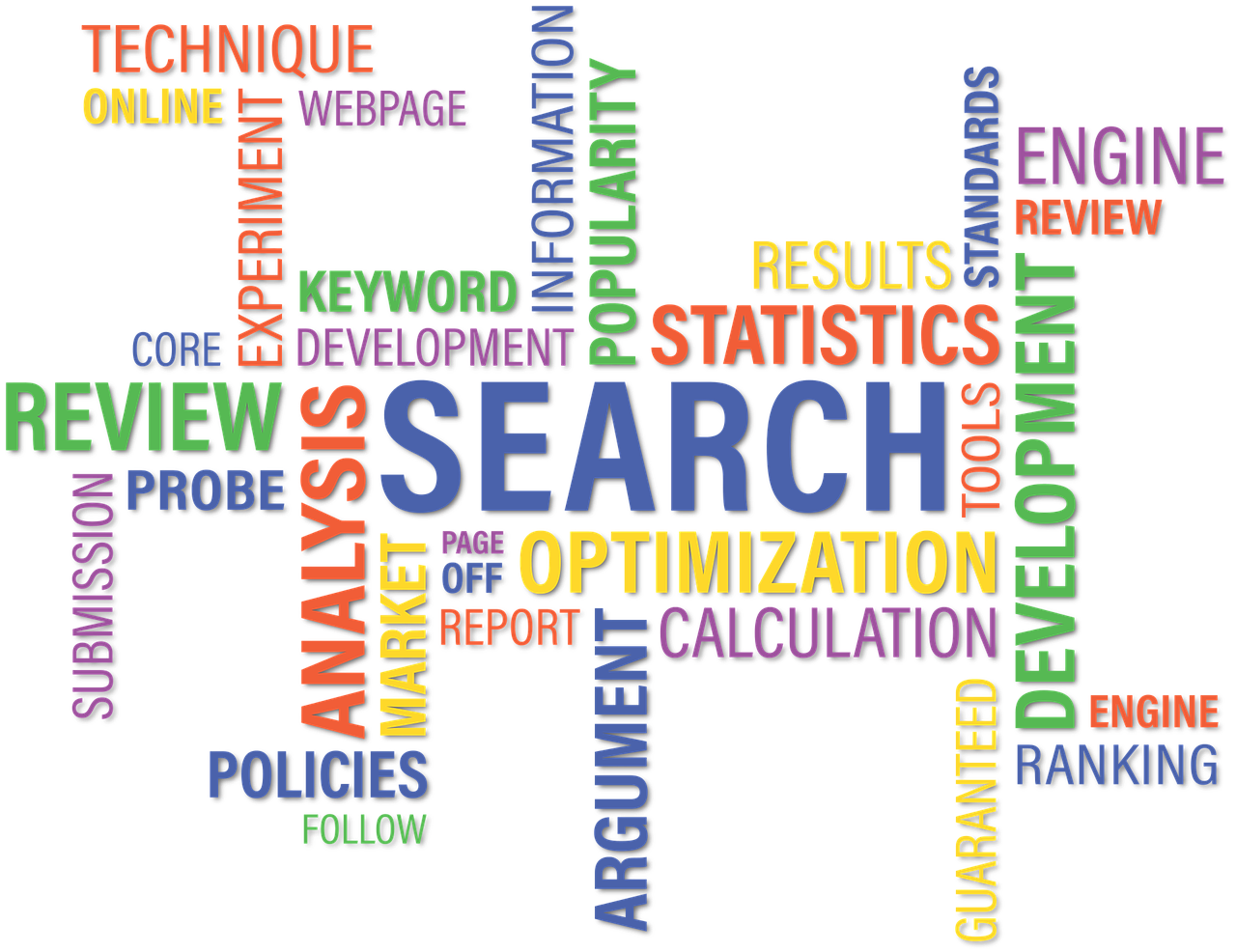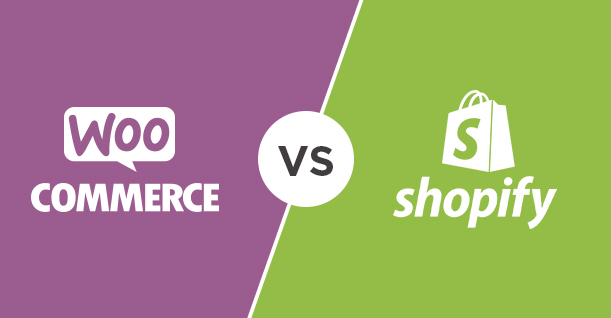So you’re ready to launch your online store. After all the dedication and hard work it took to create your unique product, it’s finally time to send it out into the world. But it turns out there’s still one tough decision left to make: which e-commerce platform is the best solution?
When you’re starting an ecommerce business, finding a suitable platform can be quite a challenge. There are a variety of different options out there, which can make it hard to know which one is right for you. It is crucial that you choose the perfect fit for your business solutions, to set yourself up for success.
WooCommerce and Shopify are two popular CMS, easy-to-use, e-commerce platforms. Both are designed to help you sell your products seamlessly. However, each platform comes with certain strengths and weaknesses. So how can you decide which is better for you and your business? Get information here now.
There are many elements to examine when it comes to this decision, but in this article, we will focus on Search Engine Optimization (SEO). We’ll put WooCommerce and Shopify ecommerce platforms head-to-head and examine which one comes out on top when it comes to SEO. Firstly, though, it’s important to get a quick overview and comparison of both platforms and their differences, and a glimpse into SEO and why it’s so important for your online business vendors. Marketing features such as SEO, content creation, email marketing, customer experience and social media management are essential for online business vendors to understand in order to maximize their reach and visibility in the market.
Introduction to WooCommerce and Shopify

Photo credit: https://logos-download.com/
WooCommerce is an e-commerce plugin. It can be used to convert a WordPress site into a functioning online store. It is an open-source plugin, meaning that it is both free and easily customizable. There are available add-ons and extensions, which are constantly being expanded upon. Thanks to this flexibility, WooCommerce can be modified for use by a wide range of companies. Whether your business is small or large, WooCommerce can be customized to be a great fit for ecommerce business.
The greatest upside of WooCommerce lies in the fact that it is an open-source software platform. This gives it two key advantages. Firstly, it means that WooCommerce is free to install. Secondly, it means that WooCommerce is easily customizable. However, these benefits come with a catch: WooCommerce does require knowledge of coding or need help setup by developers. In addition, some of the add-ons, integration, WooCommerce themes and extensions that WooCommerce has to offer to require paying a premium. Although you are not paying for WooCommerce itself, these add-ons can end up costing you.
WooCommerce is an extremely popular choice for businesses selling online. In fact, as of 2020, it claims to be the world’s most popular ecommerce platform. Launched in 2011, it has the experience and longevity to back up its popularity. That’s why it has become such a trusted content management system.

Like WooCommerce, Shopify is a website builder that helps businesses run their online ecommerce store. However, Shopify is a product you purchase, and not an open-source plug-in. Once you’ve decided to pay for Shopify’s services, you receive more of a turnkey experience. The product you receive is already integrated and loaded with all the features you need. The great advantage or feature of Shopify is that it doesn’t require knowledge of coding. It features slick pre-created designs, reputable and responsive customer support, and is easy to use. These services, however, do come at a cost. Unlike the free WooCommerce, you will be paying a premium each month for Shopify. Shopify accepts transaction fees from credit card payment transactions directly.
Shopify does allow users full access to their code as well. As with WooCommerce, this means that their product is more customizable if you happen to have the knowledge and skillset to use this to your advantage. For advanced users who have no problem working behind-the-scenes, Shopify is also customizable to them.
Shopify is also an e-commerce giant. As of 2020, it is being used by a whopping more than 800,000 businesses to power their online shops. Founded in 2004, Shopify also has an extensive history and background in e-commerce, making it a giant in the field. In 2004, Shopify had already established itself as a leader in e-commerce, with a wide range of sales solutions that allowed businesses to efficiently manage their online stores, Shopify help center for setup process, process payment gateways, payment price options, costs plans, package reports and track their sales performance.
Understanding Search Engine Optimization (SEO)

You probably already know that search engine optimization (SEO) is key to attracting new customers online. However, as with most things, utilizing SEO to your advantage is easier said than done.
SEO is essentially the practice of increasing both the quantity and quality of traffic to your website through organic searches. When a customer types in keywords related to your product, you want your website to be easily found by them. The higher your website ranks in a search engine’s results, the more likely it is that a customer will click. Having a strong SEO strategy ensures that your site is always at the top of the page of search results, and therefore receives more clicks. It also ensures that customers are able to find what they’re looking for, which is your product, and not the competitors’.
There are many elements that play into how highly your website ranks in search results. A few of these elements include:
- Organic links leading from other websites to your store.
- Structuring a website domain that is optimized for search engines.
- Optimizing the content of your website for search engines
- The age of your domain name
- The perceived legitimacy of the website, based on factors such as engagement
When you are just starting out, some of these elements may be difficult to execute at first. For example, the age of your domain name is largely out of your control. Getting links from other websites to your store is also something that will take time to achieve, and won’t happen immediately. Many of these goals will ultimately require long-term planning and strategizing. Building a reputation for your brand demands commitment over a lengthy period of time. However, there are ways you can structure and optimize your ecommerce platform website from the very beginning to be friendly for search engines. WooCommerce and Shopify both can be used to your advantage to do exactly this.
Understanding WooCommerce and Shopify’s advantages and weaknesses with SEO can help you make the right choice for your business. Taking the time to learn about which platform is right for you will help you lay that solid foundation.
WooCommerce vs Shopify SEO
Both WooCommerce and Shopify were designed with Search Engine Optimization in mind. These platforms understand the importance of ranking highly and getting solution results for their users. However, as discussed above, these platforms were built very differently. The general advantages and disadvantages of each, which have been outlined previously, also resurface when it comes to SEO.
The key differences that have already been described between WooCommerce and Shopify are reflected in their approaches to SEO. Namely, WooCommerce also emphasizes the ability to customize their product and tailor it to your dropshipping business. Shopify, however, is best noted for the convenience it offers.
If you are trying to decide between these two platforms, and SEO is a big factor in your choice, this article guides to describe the two platforms’ advantages as well as potential downsides. Although there are many other factors that could play into your choice of platform, SEO is one that should be at the top of your list. So how do you make your decision?
Firstly, let’s discuss how WooCommerce integrates SEO into their platform. As you’ve read above, WooCommerce works directly with WordPress. This gives users the automatic advantage of access to all of WordPress’ existing SEO capabilities. Whether or not you’re selling a product, WordPress already has the built-in ability for you to experiment with optimizing content and metadata. Using WordPress, savvy WooCommerce users can use elements such as meta descriptions and titles to tell search engines what their page is all about.
WordPress also has a very large existing range of SEO plug-ins. All of these options are available to you when using WooCommerce. Many of these plug-ins are notably easy to navigate, and you have dozens of options to choose from. Some examples of plug-ins within WordPress which can work with WooCommerce to boost your SEO results include:
- Asset Cleanup
- Perfmatters
- Yoast SEO
- Automatic Alt Attributes
- Schema Pro
- Customer Reviews for WooCommerce
- WP Rocket
- Yoast WooCommerce SEO
- Rank Math
- Google Site Kit
- Really Simple SSL
- Elementor
- ShortPixel
- Redirection

Each of these has its own specific use. They tackle different elements of SEO. Examples include: optimizing the content of your page, helping keep your content fresh by republishing old articles, or compressing images. So many customizable plug-ins mean that WooCommerce gives you an edge in terms of the variety of capabilities it offers. However, there is a downside to having so many plug-ins, which is that things can become very complicated if you are a first-time user. You might need multiple plug-ins to accomplish the SEO strategy which you’re going for. You may also need to pay for some of these software plug-ins. All of these great options can become confusing or overwhelming if you’re unfamiliar with what you’re doing.
So how does Shopify compare? Its main advantage is that the majority of its features are automatic. They do the work for you, and they come built-in with the product. You won’t need to spend time deciding which plug-ins are right for you, and doing your research in setting them up. Shopify has already taken care of this, and once you start using the Shopify WooCommerce, you have access to all its SEO features without doing a thing. They give your site a boost without requiring any manual input from you.
This could seem to limit if you already have an intimate knowledge of SEO. But Shopify also allows store owners to go a step further. You can also manually optimize content by editing meta descriptions, title tags, and alt text for images. In addition, Shopify does offer plug-ins that are focused on SEO setup. You can find these on the Shopify App Store, which is a store dedicated just to these plug-ins. If you use Shopify, you are still able to take advantage of plug-ins (or as they call them, “apps”) and their specific, targeted goals. However, Shopify has fewer plugin options than WooCommerce.
In keeping with Shopify’s reputation of providing great customer support and options for customers, they also allow you to easily hire a Shopify expert who can help you navigate SEO. Of course, this comes with an additional cost, which may not be ideal for all users. However, the option to work directly with one of their approved experts could be exactly what your business needs for an extra boost.
The differences between WooCommerce and Shopify’s capabilities are clear when it comes to SEO. Since WooCommerce is open-source and works with WordPress and templates, it carries these advantages into the platform. Users who want more options and more capability might gravitate toward WooCommerce for these reasons. In contrast, Shopify was designed for users to be able to easily administer. The trade-off is that it is less customizable, but may be simpler to navigate if you are a beginner.
Comparison of Features
After discussing the significance of selecting the appropriate e-commerce platform for your online business and learning about WooCommerce and Shopify, we will now compare the features of these two platforms with an emphasis on SEO.
WooCommerce: The Customizable Powerhouse
1. WooCommerce is a plugin for WordPress that provides a wealth of customisation options due to its open-source nature. You may optimise your site’s search engine rankings with the help of the thousands of WordPress layout theme, SEO plugins, and other add-ons available to you.
2. Search engine optimisation (SEO) plugins: WooCommerce theme is compatible with plugin likes of Yoast SEO, Rank Math, and Google Site Kit. These add-ons provide you complete command over your site’s metadata, sitemaps, and other vital SEO features.
3. You can optimise your product descriptions, blog entries, and other material for search engines by utilising the WordPress and WooCommerce combination. WordPress’s content management system is well-known for its search engine optimisation (SEO) benefits.
4. WooCommerce’s rich ecosystem of plugins and extensions makes it easy to tailor the software platform’s SEO features to your business’s unique requirements. Choose those that work well with your SEO approach.
5. WooCommerce makes it simple to manage and change important SEO factors like meta descriptions, titles, and alt text for photos.
6. While WooCommerce is open-source and free to use, premium search engine optimisation plugins and extensions may be sold separately in various pricing plans. However, you may pick and choose which WooCommerce features you actually use on your dashboard.
Shopify: Simplified SEO
1. Built-In SEO. Shopify has pre-installed search engine optimisation tools that make the process easier for newcomers. It creates SEO-friendly URLs mechanically, takes care of canonical tags, and supplies image alt text.
2. User-Friendly. Shopify’s intuitive design makes it a good fit for folks who aren’t tech-savvy when it comes to SEO or coding. It simplifies SEO, cutting down on the need for extra plugins and installation.
3. App Store. Shopify’s App Store features a selected selection of SEO-focused installation apps, although there are fewer total apps than in the WooCommerce-friendly WordPress ecosystem. You can use these apps for all your SEO requirements.
4. SEO Expert Assistance. Shopify facilitates the recruitment of SEO specialists. This can be helpful if you are in need of expert advice.
5. Automatic Updates. Shopify takes care of upgrades and maintenance, so your site is always search engine optimised without any more work from you.
6. Monthly Premium. When compared to WooCommerce, Shopify’s monthly subscription charge is more manageable because it includes web hosting provider, security, and continuous support.
Pro Tips for SEO Success
SEO for your e-commerce site is essential whether you use WooCommerce or Shopify. Learn from the experts’ advice on how to improve your SEO results:
-
Quality Content
Produce work of the highest quality that is interesting and relevant to your audience. Maintain an active blog and accurate product descriptions by adding new content frequently.
-
Keyword Research
Do some in-depth keyword research to find out what your target audience is looking for. Incorporate these terms thoughtfully into your writing and product descriptions.
-
Mobile Optimization
Make sure your company’s online store is compatible with mobile devices. Because of Google’s emphasis on mobile-friendliness, this is crucial for search engine optimisation.
-
Page Speed
Fast-loading pages are favored by search engines and users alike. Reduce user frustration and boost search engine rankings by enhancing the site’s functionality.
-
Backlinks
Earn high-quality, relevant connections from authoritative websites to strengthen your backlink profile. The focus ought to be on quality, not quantity.
-
User Experience
Make sure your website’s user interface is well thought out, with clear calls to action and a safe checkout system. To some extent, SEO is influenced by user happiness.
-
Monitoring and Analytics
Track your SEO progress with the help of tools like Google Analytics and Search Console. Make smart choices and fine-tune your plan by analysing data.
-
Stay Updated
SEO methods and guidelines are constantly improving. Keep up with the latest developments in the market and algorithm upgrades so you can adjust your approach accordingly.
Ultimately, your decision between WooCommerce and Shopify’s strong SEO tools will come down to your level of comfort with code, your desire for extreme personalization, and your available funds. The success of your online store depends on a well-executed SEO plan, regardless of whether you choose with the adaptability of WooCommerce or the simplicity of Shopify.
Pro Tips for Launching Your Online Store
Creating a successful online store from scratch may be both an exciting and daunting prospect. Think about these expert suggestions to help assure the success of your online storefront:
Comprehensive Market Research
Do your homework on your specialty, competition, and market before plunging in. Get to know your target market’s likes, dislikes, and problems so you can better cater to them.
Effective Branding
Create a memorable brand name and logo that will attract shoppers. A memorable logo, a unified colour palette, and a compelling selling point are all essential elements.
User-Friendly Design
Put the user’s needs first when designing your website. To reduce the number of abandoned shopping carts, make sure the site is simple to use, has well-defined categories, and a simplified checkout procedure.
Mobile Optimization
Since mobile purchases are so common, your site must be mobile-friendly. SEO and user happiness both greatly benefit from mobile optimisation.
High-Quality Imagery
Spend money on high-quality product photos. Images of high quality have been shown to have a profound effect on consumer spending. Make it possible to zoom in and out and see the product from different perspectives.
Detailed Product Descriptions
Write up product descriptions that are both interesting and instructive. Introduce the most important aspects, advantages, and applications. Respond to concerns expressed by prospective buyers.
Secure Payment Options
Provide a number of safe payment gateway methods to appeal to a wide range of customers. Protect sensitive consumer information by using SSL certificates and keeping your security procedures up to date.
Effective SEO Strategy
Improve your website’s rankings in search engines by implementing a thorough SEO plan. Get higher rankings by conducting keyword research, tweaking meta tags, and making useful content.
Content Marketing
Promote your material online to get organic visitors. Maintain a consistent publishing schedule of niche-related blog entries, tutorials, and videos. Establish your credibility by imparting your knowledge to others.
Customer Reviews and Testimonials
Inspire happy clients to share their experiences via reviews and testimonials. Customer confidence and trust are increased by positive reviews, which in turn influences sales.
Email Marketing
Create a mailing list and keep it active. Engage your audience, promote your items, and reclaim abandoned baskets with targeted email marketing campaigns.
Social Media Presence
Connect with your target market via social media. Communicate product changes, interact with fans, and launch customised advertising campaigns to reach more people.
Analytics and Data Analysis
Always keep an eye on your website’s analytics to see how things are going. Make better choices, see emerging patterns, and fine-tune your online store’s operations with the help of data analysis.
Customer Support
Maintain a high standard of client service. Maintaining an open line of communication with customers and responding quickly to their needs can help you gain and keep their loyalty.
Continuous Improvement
There is constant change in the world of online business. Maintain a growth mindset and listen to criticism. Incorporate client input and market shifts into ongoing website, product, and promotional strategy optimisation.
Frequently Asked Question
Why is choosing the right e-commerce platform important for online businesses?
Your online store’s success will be heavily influenced by the ecommerce platform you decide to use to market and sell your goods.
What are WooCommerce and Shopify?
WooCommerce is a free plugin for WordPress that adds e-commerce capabilities, whereas Shopify is a premium e-commerce platform that offers a turnkey answer for managing online shops.
How do WooCommerce and Shopify differ in terms of customization?
WooCommerce is highly adaptable, yet using it may necessitate knowledge of coding or additional fees for premium extensions. Shopify is a user-friendly e-commerce platform with certain pre-made elements.
What is Search Engine Optimization (SEO)?
Search engine optimisation, or SEO, is the process of enhancing your website to rise in the organic search results and thus get more visitors.
What elements influence SEO ranking?
SEO rankings are affected by a wide variety of factors, including inbound links from other websites, site architecture, content optimisation, domain age, credibility, and user participation.
How does WooCommerce integrate SEO into its platform?
By integrating with WordPress, WooCommerce can take advantage of the platform’s preexisting search engine optimisation features. SEO tools such as meta descriptions, titles, and plugins are available to users.
What are some popular SEO plugins available for WooCommerce?
Yoast SEO, Rank Math, Google Site Kit, and many more are just a few of the many search engine optimisation (SEO) plugins available for WooCommerce.
How does Shopify handle SEO?
Shopify has in-built SEO tools and pre-made layouts that tweak meta descriptions, page names, and URL structures for increased search engine rankings.
Which platform is more customizable for SEO, WooCommerce, or Shopify?
WooCommerce is more flexible than other shopping carts because it is open source and supports a vast variety of plugins. Shopify has useful built-in features, but fewer plugins than its competitors.
How can a newcomer decide between WooCommerce and Shopify for SEO?
Shopify’s user-friendly design and integrated SEO capabilities make it the preferable choice for inexperienced users. Those who know how to code or are prepared to pay for a developer will benefit most from WooCommerce’s flexibility.
Can Shopify users access SEO plugins?
There are several SEO plugins (apps) available for Shopify stores, but not nearly as many as there are for WooCommerce stores in the Shopify App Store.
How can businesses benefit from SEO in e-commerce?
In order to boost conversions and revenue, SEO aids firms in gaining a larger share of organic search engine traffic.
How does the choice between WooCommerce and Shopify affect a business’s SEO strategy?
Which option a company goes with relies on its technical resources and top priorities. WooCommerce gives you more options and management, but Shopify is easier to use.
What should businesses consider when choosing an e-commerce platform for SEO?
When picking between WooCommerce and Shopify, you should think about your coding experience, the extent to which you need to customise your store, the size of your budget, and your long-term business ambitions.
Is there a clear winner between WooCommerce and Shopify for SEO?
Which one is better for your company will rely on its unique circumstances and objectives. Both have their benefits and drawbacks when it comes to search engine optimisation, so weighing your options is essential.
WooCommerce vs. Shopify Conclusion
When it comes to Shopify vs WooCommerce, both have their own advantages when it comes to SEO. Both are great options. They are well-established e-commerce platforms that have been extremely successful at what they do. Each platform has taken SEO into account in developing its product. With their range of experience in the e-commerce world, they both clearly understand the importance of a solid SEO strategy.
There are many differences to consider when choosing an e-commerce platform. However, if SEO is your main concern when it comes down to deciding which e-commerce site to utilize, it depends on what features you are looking for.
Essentially, the decision returns to one specific difference. The key is ease of use. WooCommerce does have more options and capabilities for SEO. However, Shopify is easier for newcomers to navigate.
If you are experienced in working with coding, or are planning to hire someone who is, WooCommerce might be the right choice for you. On the other hand, if you are looking for a simpler platform that doesn’t require prior coding experience, Shopify may be the better option.
When it comes to SEO, a strong strategy can make or break your ability to successfully conduct e-commerce. Understanding which platform is best for you will ultimately enable you to guide your company through its next steps.
Final Thoughts
Opening an internet store is a thrilling adventure full of possibilities and perils. As was previously mentioned, you should choose between WooCommerce and Shopify based on the platform’s ability to meet your own requirements.
Keep in mind that it often takes hard work, patience, and a desire to learn and adapt in order to achieve success in the world of e-commerce. You may set up your online shop for sustainable growth and success with smart strategy, excellent customer service, and awareness of market shifts.
Don’t waver in your dedication to serving your consumers’ needs, and remember that in the dynamic world of e-commerce, originality and resourcefulness are more important than ever. Your online store has the ability to succeed and grow in today’s competitive economy if you take the appropriate steps.















